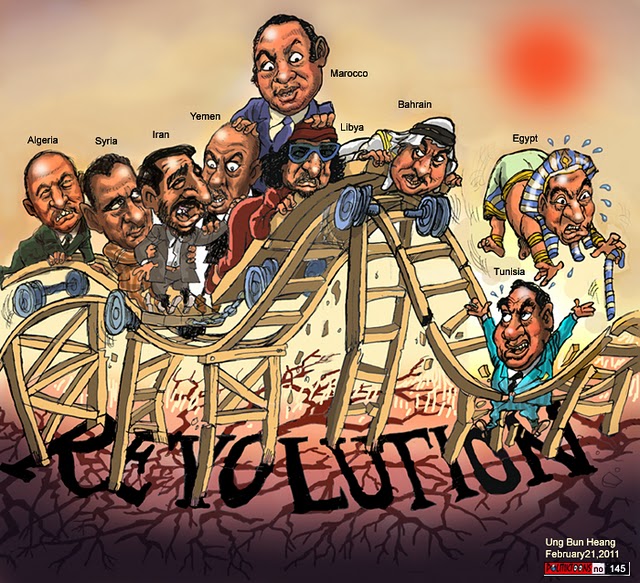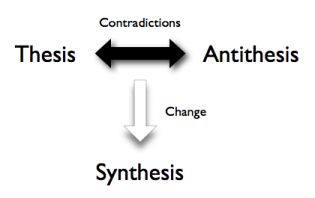
Old Yobbo said:
‘Come to think of it, yes, the situation isn’t that different from Saddam’s Iraq, just on a more compressed time-frame. Which, if anything, makes me a bit more disposed towards the US invasion of Iraq (Christ, I never thought I would ever think that) …..’
http://larvatusprodeo.net/2011/03/12/libya-the-left-and-the-no-fly-zone-debate/#comment-267941
September 11th 2011 ought to focus left-wing minds on what has become of the internationalist left, that ten years ago stood gob-smacked with everyone else, as humanity watched the unimaginable horror of those attacks.
Naturally all the old categories of leftists are still around and plenty of the recognized leaders too, but via the twists and turns of the intervening years those that started as self declared leftists and internationalists have reached a destination that is, as is usual for all political journeys, places that none of us really set out for. The numbers have dramatically changed after all that experience and it’s worth looking at the how, the why and the what of it.
Early in 2011 a small number of leftists joined in the call for the U.S. and the rest to impose a No Fly Zone (NFZ) on the Libyan tyranny, with the clear understanding that this meant starting with bombing. Most of these leftists then went quiet when it was blindingly obvious that NATO was not imposing a NFZ on the basis of any doctrine of the responsibility to protect, (R2P) but rather acting as the artillery (that conquers) for the Libyan revolutionaries who would occupy. This is a huge leap forward from a decade ago. These leftists in their silence were advocating war. They were only hiding behind R2P, and the pseudo-left didn’t hesitate to point this out. Those that went silent as the war was fought and won wanted more than just the democratic revolutionaries protected against their heavily armed tyrannical opponent. They wanted results. They wanted victory for the rebels across the entire country.
The previous decade ending at 9/11 was one of obvious collapse for the left and that requires no discussion here. But IMV a significant genuine left is now capable of arising from the fresh shoots now emerging from this last decade.
Going back to late 2002 we said that the US had altered their policy by 180 degrees from supporting dictatorship in the Mjddle East to supporting democracy in the Middle East.
The following six sub-periods provide some structure as to how peoples thinking has changed over those past 10years:
2001-2003: 9/11 atrocity; US invades Afghanistan; Iraq invasion / liberation.
This represented a disaster for the realists who wanted to maintain stability in the Middle East. This was the end of business as usual. The invasion and liberation of Iraq from the fascist minority Sunni based Baathists was an indirect but strategically vital response to the 9/11 attack. This response surprised Al Quaeda.
2003- 2005: US policy has good and bad features but three elections demonstrate their policy of supporting democracy
2005- 2007: The going gets tough.
2007- 2009: Bush initiates The Surge. Iraq proceeds to a normal election cycle
2009- 2010: Elections result in a delayed formation of an Iraqi Proportional Representation government
2011: The glorious Arab Spring breaks out
Incidentally, I also think that nothing potent remains of the former completely dominant political thinking of the U.S. ruling establishment from 2001. Realist policies of maintaining the status quo of autocracies are effectively dead in 2011, and for those that carry on as the zombies of that defeated school of thinking there is essentially nowhere in the ME to deploy their policy prescriptions. Anyway only governments do things and oppositions of all descriptions are free to talk and offer opinions that like assholes are common to all but no future U.S. government can revert to the old policies.
Support for the ending of the Libyan tyranny was widespread across the spectrum of what is known as the left but opposition to any ‘imperialist’ intervention was also almost exclusively to be found in this milieu as well, so a great debate was had this year and the pseudo-left was one issue that received great ventilation. Those who are stuck in the old ‘hard left’ paradigm that imperialism is the main enemy actually stand for all things conservative when it comes to ridding the ME of tyranny. They have been wonderfully exposed as useless dogmatists throughout this year of the Arab Spring and once more on the wrong side of a fire fight with the tyrants. Who is the main enemy then? All those who oppose the democratic revolution in the autocratic regimes.
The forces that had been involved in the anti-war movement in relation to the looming war in Iraq back in 2002 essentially divided in the lead-up to the war that is now concluding in Libya. My view is that at least 2 out of 3 and possibly 3 out of 4 supported action over Libya or went silent and took no stand or are now on reflection glad it happened. This group wanted western governments to do something to save the imperiled democratic revolution rather than allow Gaddafi to crush it with his superior firepower. I guess the figure for Iraq was more like 5%
But the action in the lead-up period was framed in a manner that sounded very different to just taking sides in a civil war. The reality was taking sides in a civil war. The reality was unity with western bourgeois governments who could supply the effective ‘artillery’.
Concerning the western imposition of a NFZ and other measures under the rubric of an international responsibility to protect civilians (R2P), before the actual war was launched, Guy Rundle said:
“All that matters is whether the request comes from legitimate leadership, is strategically viable, and can be limited in scope. Those conditions appear to have been met.”
What a joke. The rebels were being defeated by the tyranny until they united with various western governments and war was declared on the tyranny! There was never only a NFZ and R2P civilians ‘limited scope’ and the appearance of one was created as a deliberate lie to conceal the war fighting scope of the intervention. Guy Rundle was happy to be lied to.
The Libyan tyranny has now been all but ended with the two last towns hopefully surrendering to the rebels this very weekend. The Rebel leadership is clearly going to hold the elections that it has sought and promised
Well, those same factors have been met in the case of ending the Iraq tyranny! The Coalition Of the Willing (COW) is going home and leaving behind a democratically elected government. Eight years is all it took to smash the reactionary heart of the ME and set the region wide revolution running.



Recent Comments